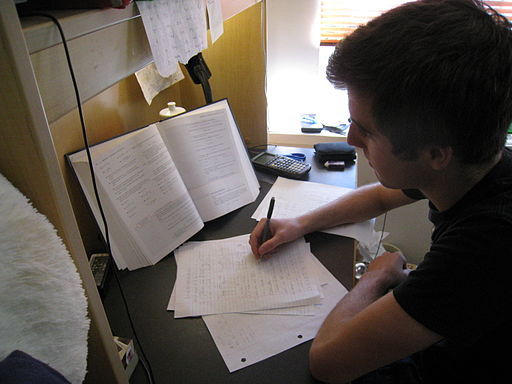Avoiding the Holiday Crash
When I was watching “It’s the Great Pumpkin, Charlie Brown” on Halloween night in college, I was excited. Thanksgiving was around the corner with the holidays following afterward.
I also was amazed at the fact that I had been at college for nearly three months. Time went by fast! I started to think about all the good food: warm apple pie, sweet pumpkin pie, homemade pasta with the freshly grated cheese…
“Wait,” I warned myself. “College isn’t over yet. In fact, it’s just beginning. Don’t get roped into abandoning your scholarly duties just yet!”
Looking back to my first day of college, I was overwhelmed with the idea that I was not going to be able to succeed at college. After all, according to the American Institute for Research, in 2010 nearly 30% of freshmen will drop out of college by the end of their first year, presumably due to their workload, their inability to properly manage their time, or even too much partying.
You know the feeling. You don’t want to do work because the day’s gotten shorter (daylight saving time ended November 7), and you’re looking forward to Thanksgiving dinner with your family. This cycle is a vicious one, and some don’t get out of it.
For many of us, the first semester is almost over. The “Holiday Crash” can destroy all we have achieved up until now. If I didn’t have the sense to get organized before the end of my senior year in high school, I wouldn’t have been able to avoid the crash.
In high school, I was not so good at organizing my time. Even though I was learning how to use a day planner in order to maximize my time, I sometimes procrastinated (as many teenagers do), leaving some of my assignments until the last minute. This, in turn, caused my homework to slowly crush me.
Now that I’m in college, I use a notebook to create several blocks of time devoted to each subject or project. By doing each piece of a project (or essay, or take-home exam, etc.) in little steps, I finish the assignment on time.
For many, procrastinating in high school is a problem, but in college, it can become a big problem. If you hand in an assignment even one minute late, you can fail. Yes, it is important that you allow yourself to relax, but it is equally as important that you return to work.
Studying was never a problem for me. In fact, my parents would say I studied too much. For those who wonder, “What’s the problem?” My problem was a matter of balance.
I spent numerous hours studying. In fact, I spent most of my time studying and losing sleep over the exams. I would read-and reread-whole chapters of textbooks for hours. Looking back, if I had more confidence in my knowledge and avoided worrying so much about the information itself, I could have done better on some of those tests.
It’s important to study, but I caution against staying up all night to study. Rather, study a few chapters every night, so you can better absorb the material.
If you find that you can’t adhere to a schedule or you can’t study, work at it. Eventually, you will get it.
You know what they say. “Practice makes perfect.”
Think about it this way: if you don’t do well in all your classes, you could lose your freedom and be stuck eating Mom’s bittersweet pumpkin pie on more than just Thanksgiving…
Michael Roppolo
Rochester, New York
The author is a freshman journalism major and history enthusiast at Rochester Institute of Technology. Currently, he writes for Rochester’s weekly magazine, Reporter Online. He hopes to one day work for a magazine that combines his love of history with his love of writing.

